Detailed introduction of Katholieke Hogeschool VIVES:
Introduction
Katholieke Hogeschool VIVES is a well-known higher education institution in the Flemish region of Belgium. It has attracted attention for its high-quality education and wide range of subject settings. It is committed to providing students with applied education that is closely integrated with the actual needs of society.
Overview
Scale: With approximately 17,000 students and 1,700 faculty and staff, it is one of the largest higher education institutions in West Flanders.
Campus distribution: Administratively divided into VIVES-South and VIVES-North, the campuses are located in five cities in West Flanders, including Bruges, Kortrijk, Ostend, Roeselare and Torhout.
Course settings: It offers 30 professional bachelor's degree programs and 21 postgraduate degree programs, covering 6 learning areas such as biotechnology, health care, business research, technology, education, and social welfare work. It also has excellent performance in distance learning and is the leader in distance courses for professional bachelor's degrees in the Flemish region.
History and establishment time
July 13, 1994 The decree of 1989 led to the merger of all higher education institutions in the Flemish Community into larger multidisciplinary entities. In this context, two major higher education groups emerged in 1995: Katholieke Hogeschool Zuid-West-Vlaanderen (katho) and Katholieke Hogeschool Brugge-Oostende (kh bo).
In 2002, katho and kh bo belonged to the Association of the Universities of Leuven.
On June 23, 2010, katho and kh bo signed a declaration of intent to cooperate. In 2012, the merger was announced to the public as Hogeschool VIVES. On September 18, 2013, it was officially established as Hogeschool VIVES. The new school year begins in the name of.
School Strength
Teaching Staff: We have a team of highly qualified teachers who not only have solid professional knowledge, but also have rich teaching and practical experience. They can provide students with high-quality education and guidance, help students better master professional knowledge and skills, and lay a solid foundation for future career development.
Teaching Resources: The school is equipped with advanced teaching facilities and complete learning resources, including modern laboratories, libraries, computer rooms, etc., which create a good learning environment for students and support students to conduct in-depth learning and research.
Education Cooperation: Actively participate in international education cooperation projects, carry out student exchanges, teacher visits and other activities with universities in other countries and regions, broaden students' international horizons, enhance the school's international influence, and provide students with a broader development space.
Institutional Nature
Katholieke Hogeschool VIVES It is a Catholic higher education institution.
Educational philosophy
Focus on cultivating students' practical ability and innovative spirit, emphasize the close integration of education with the actual needs of society, and enable students to learn and grow in practice through practical teaching, project cooperation, etc., cultivate students' ability to solve practical problems, enable students to better adapt to future career development, and cultivate applied talents with innovative ability and social responsibility for the society.
Key laboratories and disciplines
Key laboratories: The school has many professional laboratories, such as Maak lab, Zorg lab, Biolab, Drone lab, Livelab, Simlab, Stimul, Spellen lab, Foodlab etc., providing students with a platform for practical operation and research, helping students to apply theoretical knowledge to practice and improve their practical and innovative abilities.
Key subjects:
Biotechnology: covers professional directions such as agricultural industry, biotechnology, animal care, green management, agriculture, agricultural mechanization, and food technology, cultivating students' professional knowledge and practical skills in the field of biotechnology, and providing professional talents for related industries.
Health care: including physical therapy, speech therapy and audiology, nursing, nutrition and dietetics, midwifery, nursing technology and other majors, cultivating a large number of professional talents in the medical and health field, and graduates play a role in hospitals, rehabilitation centers and other institutions It plays an important role.
Business Research and Enterprise Management: It has majors such as enterprise management, accounting and taxation, automobile management, business management and entrepreneurship, digital business management, and event management. It focuses on cultivating students' economic analysis ability, management decision-making ability, and business innovation ability, and has trained a large number of management talents for enterprises and financial institutions.
Education: It covers majors such as early childhood education, primary education, and secondary education, and has trained a large number of outstanding educational talents. Its education major has a high reputation and influence in Belgium. The curriculum setting focuses on the cultivation of educational and teaching abilities and educational innovation awareness, and has made important contributions to the development of education.
Department Settings
The school has There are 6 study areas, namely biotechnology, health care, business research and enterprise management, technology, education, and social welfare work. Each study area contains multiple majors and courses, providing students with a variety of study options.
Ranking
It has a high reputation and influence among higher education institutions in Belgium. It is one of the larger higher education institutions in the Flemish region, but it does not perform well in the international comprehensive university rankings.
Expenses
Tuition fees: Undergraduate tuition fees are approximately between 800-1500 euros per academic year, and master's tuition fees are relatively high, about 1500-3000 euros per academic year. The specific fees vary depending on the major and course.
Other expenses: Students also need to pay other expenses such as accommodation, living expenses, and textbook fees. Accommodation fees vary depending on the type of accommodation and campus location, and are approximately between 300-600 euros per month; living expenses vary from person to person, and are approximately 500-800 euros per month.
Campus
Campus environment: Each campus has a beautiful environment and a high green coverage rate, providing students with a comfortable and pleasant learning and living environment. The campus architecture has diverse styles, integrating modern and traditional elements, creating a strong academic atmosphere.
Campus facilities: The campus is fully equipped. In addition to teaching facilities, it also has student dormitories, canteens, gymnasiums, cultural activity centers and other living and entertainment facilities to meet students' daily life and extracurricular activities, enriching students' campus life.
-
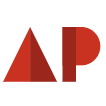
Artesis Plantijn Hogeschool Antwerpen
-
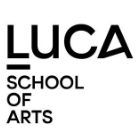
LUCA School of Arts
-
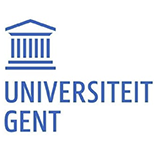
Ghent University
-

Vrije Universiteit Brussel
-
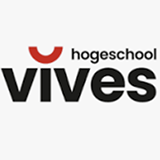
Katholieke Hogeschool VIVES
-
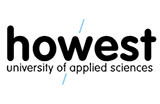
Hogeschool West-Vlaanderen
-

Antwerp Management School
-

University of Antwerp
-
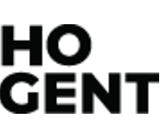
Hogeschool Gent
-

Karel de Grote-Hogeschool
-

Mesoamerican University
-

Istmo University
-

Mariano Galvez University of Guatemala
-

Regional University of Guatemala
-

Galileo University
-

Francisco Marroquín University
-

Rafael Landívar University
-

University of the Valley of Guatemala
-

University of San Carlos of Guatemala
-

Technological Institute of Tlaxcala Plateau
-

Golfo University
-

Technological University of South Sonora
-

Technological University of Huejotzingo
-

Tizimín Institute of Technology
-

Chilpancingo Institute of Technology
